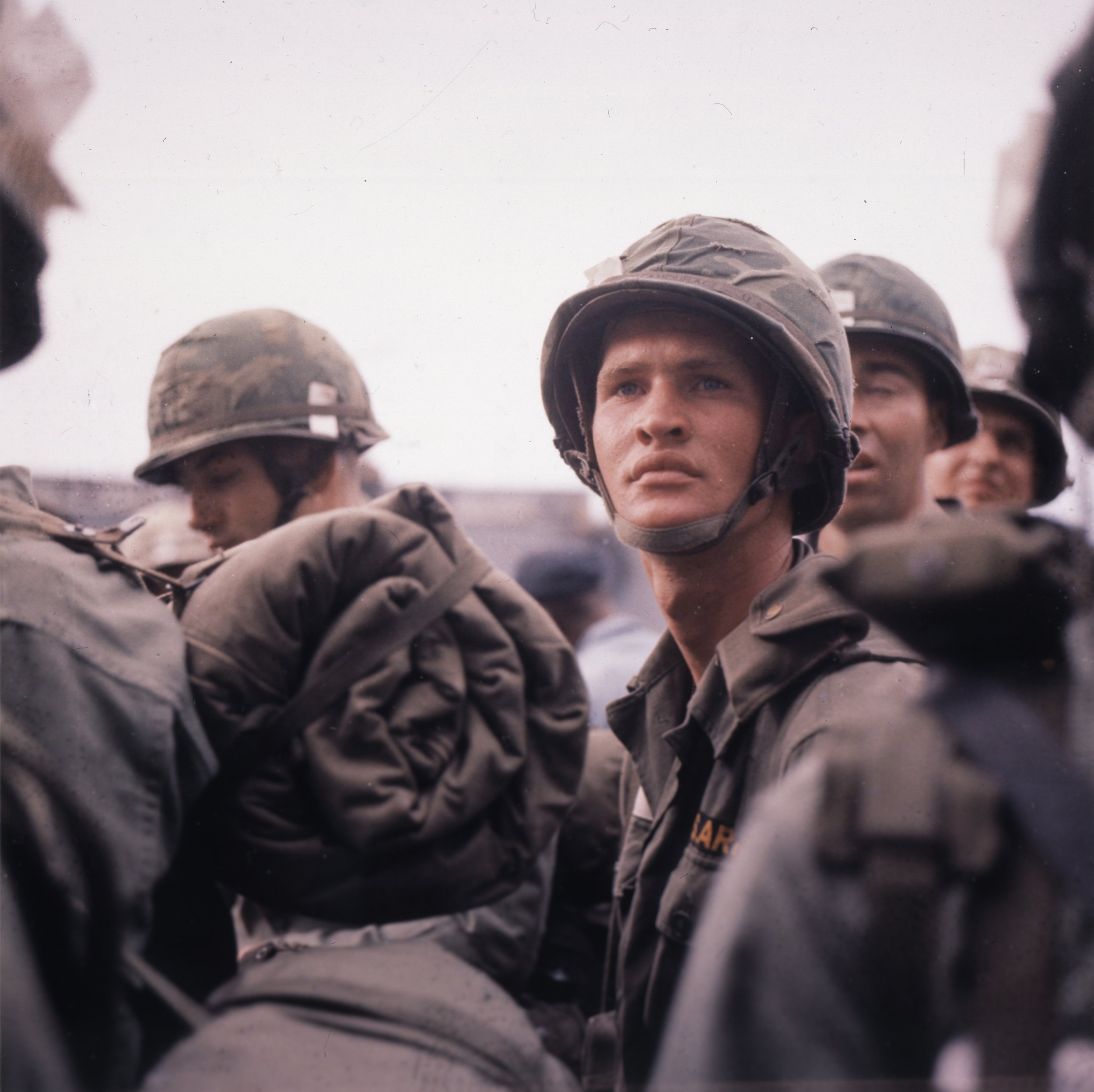
Updated | Strolling down a street in the city of Da Nang, Vietnam last month, I came upon a sidewalk shop selling shiny wood caskets. When I stopped to take some pictures, the elderly owner came out, smiling, and asked where I was from.
"America," I told him, and he broke into a wide grin. Was I here during the war? he asked. I was, I said, in the Army. Then he raised his arms like he was firing a rifle. "I fought for Ho Chi Minh!" he exclaimed. I chuckled, struggling for an appropriate response. "Well," I finally said, "I fought to stay alive."
Nearly 50 years after the war's end, Americans, including Vietnam veterans, are still struggling to explain how we got involved in that disastrous, and ultimately futile, war. And that goes for Ken Burns and Lynn Novick, directors of The Vietnam War, a much-heralded 10-part, 18-hour epic series that debutted Sunday night on PBS.
Related: Ken Burns' New Documentary Exposes the Emotion Behind the Vietnam War
Burns says he began thinking about revisiting the Vietnam War decades ago, but decided the national psyche wasn't ready for it. A previous major PBS series on the conflict in 1983, based on a celebrated book by veteran Vietnam correspondent Stanley Karnow suggesting that the war was less than honorable, provoked a loud right-wing backlash. So he decided to wait.
Now, Burns says, it's time to talk—and get over it. "With knowledge comes healing," he told Vanity Fair. "The seeds of disunion we experience today, the polarization, the lack of civil discourse all had their seeds in Vietnam," Burns told The New York Times. "I can't imagine a better way to help pull out some of the fuel rods that create this radioactive atmosphere than to talk about Vietnam in a calm way."
Good luck with that, as we said in 'Nam. While the TV critics have been agog with praise and wonder over the series's cinematic mastery, depth of research (some 80 interviews of participants on all sides) historical sweep and emotional punch, some veterans and longtime students of the war are already taking critical aim at the series's fuzzy treatment of the war's central question: Why did we get involved in the first place? Who thought that was a good idea?
Burns strives to give everyone's strongly held, divergent views equal weight, but before long, he's waist deep in a historical big muddy, wandering among competing theories that obscure the root cause of a war that killed an estimated minimum of 429,000 U.S. and allied soldiers and 533,000 communist troops and civilians between 1954 and 1975. Many estimates soar far above those. Millions more were wounded.
"Many veterans fear that this new documentary will misrepresent what really happened and why, substituting [the] 'many truths' which Burns says he will present," Chuck Searcy, an Army Intelligence veteran of the war, said in an email to friends this week from Vietnam, where he has spent the past several years helping to rid the countryside of buried U.S. munitions that are still killing people. "It may permit us Americans, once again, to evade the harsh reckoning that is long overdue, and allow us to remain in denial about what we did in Viet Nam, and why."
At an early screening of the film's highlights in Washington, D.C.this spring, Burns said that, "for us, the war begins in 1945," not 1965, when President Lyndon Johnson dispatched the first U.S. ground combat unit to South Vietnam. Good start. But in episode one, he stakes the proper context for the starting point in France's mid-19th century conquest and colonization of territories that would eventually become Vietnam, Laos and Cambodia. For the next 80 years France plundered the region for its rubber, tin and other resources, impoverishing its workers while creating a servile class of French-speaking native bureaucrats to carry out its orders, all largely financed by the opium trade. By the early 20th century, Vietnamese patriots began organizing a resistance. One of them was Ho Chi Minh.
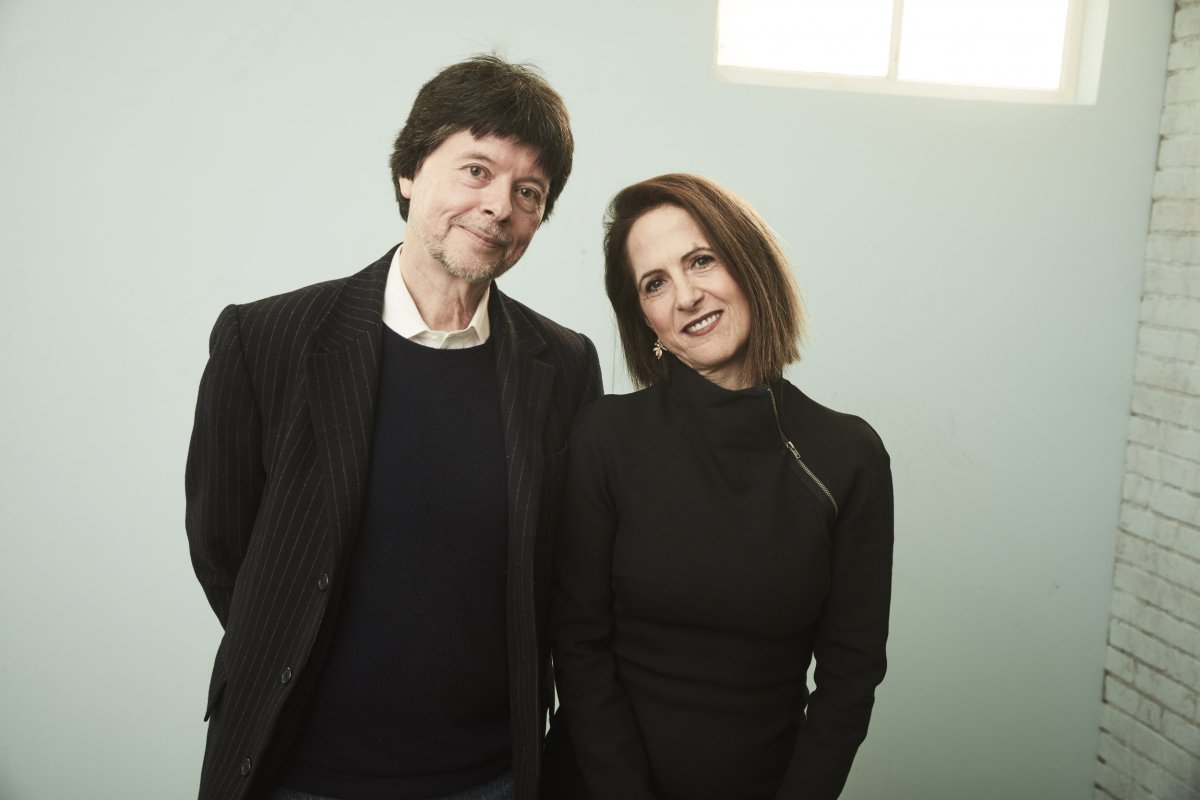
As Burns and Novick movingly show, Ho had hopes that America would come to his aid at the end of World War II, during which French hegemony over Vietnam was interrupted by Japan's five-year occupation of the country. President Franklin D. Roosevelt had signalled during the war that the era of colonialism was over, and, as the Burns-Novick series shows, Ho and his band of rebels had enthusiastically helped America's wartime secret service, the OSS, fight the Japanese. But with Roosevelt dead at war's end, his successor Harry Truman let the French back in, and the revolution was on, in earnest. The French colonial army fought on—financed largely by the U.S.—for nine bloody years. But in 1954, after a disastrous defeat to Ho's Soviet- and Chinese-backed guerrillas at a place called Dien Bien Phu in northern Vietnam, the French surrendered.
The Viet Minh might well have swept to victory throughout the country, but at a 1954 peace conference in Geneva, it accepted the "temporary" partition of Vietnam into a communist-led North and U.S.-backed South, pending elections in 1956. Two years later, the dictatorial regime installed by Washington in Saigon, honeycombed with French-trained bureaucrats and landowners, cancelled the elections knowing that Ho Chi Minh would win. And now the American war was on.
Burns and Novick know all of this—indeed, they explicate the turn of events with admirable force and verve (aided by the stellar and precise writing of historian Geoffrey Ward). But then they quickly abandon the groundwork they've laid putting the Vietnamese struggle in an anti-colonial context. "By Episode Two...the war has been framed as a civil war, with the United States defending a freely elected democratic government in the south against Communists invading from the north," notes Vietnam scholar Thomas Bass in a slashing essay that has been circulating for weeks as a kind of anti-establishment samizdat beneath the tide of gushing advance praise for the series. "American boys are fighting a godless enemy that Burns shows as a red tide creeping across maps of Southeast Asia and the rest of the world." If Burns meant to make sardonic use of the Cold War-era graphic, the gesture was lost on Bass, author of a highly praised book on one of North Vietnam's top spies in the south.
"The historical footage in episode one…which disputes this view of the war, is either ignored or misunderstood," Bass wrote last month in the tiny Mekong Review, an independent literary quarterly founded in 2015. The fact is, "defeated French forces regrouped in southern Vietnam after 1954, which is when U.S. Air Force colonel and CIA agent Edward Lansdale began working to elevate this former colony to nationhood," Bass continues. "The U.S. installed Ngo Dinh Diem as South Vietnam's autocratic ruler, aided him in wiping out his enemies and engineered an election that Diem stole, with 98.2 percent of the popular vote." (Oddly, although the influential Lansdale is shown in a photo standing right next to Diem, nothing is said about him.)
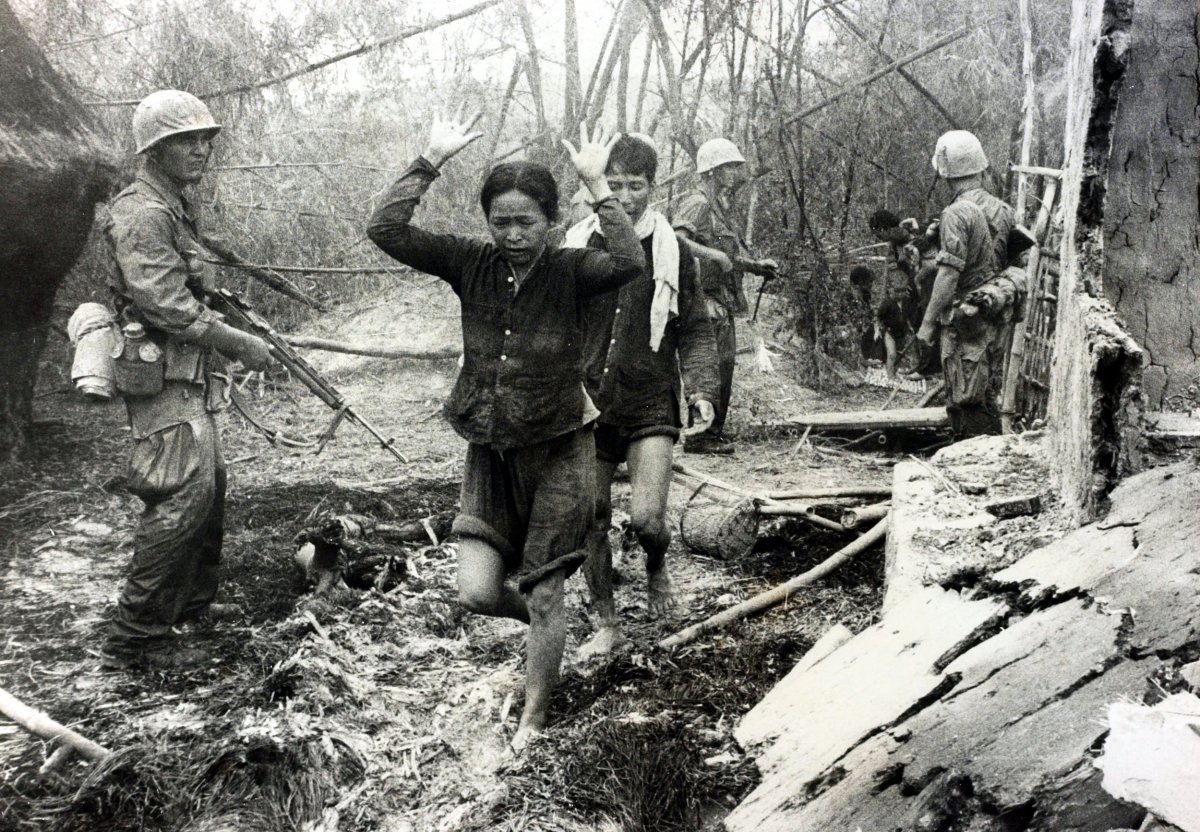
All this history pretty much evaporates at the point in the Burns-Novick series when the U.S. government begins justifying its growing military intervention in Vietnam, first under President Kennedy, and then Lyndon Johnson. Washington policymakers (and the first wave of the American reporters in South Vietnam) redefine the war simplistically as a fight for freedom. One of those reporters, the late David Halberstam of The New York Times, would later say that, "you really should have had a third paragraph in each story which should have said, 'All of this is shit and none of this means anything because we are in the same footsteps as the French and we are prisoners of their experience.'"
Alas, it was not to be. And Burns further obscures such facts with melancholy story-telling. In the classic fashion that he displayed in such previous epics as The Civil War, Baseball, Jazz and many other widely beloved documentaries, the master documentarian weaves his Vietnam saga with the threads of individual dramas. To tell the story of the Vietnamese "civil war," he has chosen Duong Van Mai, a charming, U.S.-educated daughter of a French-trained senior Vietnamese mandarin bureaucrat. In the 1950s, Mai's older sister joined the revolution while the rest of the family fled south. Mai eventually married an American who interviewed Viet Cong prisoners and defectors for the RAND Corporation, a major CIA and Pentagon contractor.
"The war divided families like hers," Bass writes, "but anti-colonialist fighters arrayed against colonialist sympathisers do not constitute a civil war." Burns, he thinks, fatally blurs the distinction.
Frank Snepp, a former CIA officer in Vietnam who went on to become an award-winning TV journalist in Los Angeles, thinks such criticism is unfair. It's TV, not a book, he tells Newsweek. Parsing the difference between an anti-colonial insurgency and a civil war "is fairly easy to explain in print, but I don't know how you do it in [this kind of] a documentary." Snepp appears in the series, recounting some of the material from his 1977 book, Decent Interval, An Insider's Account of Saigon's Indecent End. He applauds Burns and Novick for giving viewers "a holistic sense of the war" and "getting to a lot of deeper truths" about it.
"As a TV guy myself I am deeply in awe of their filmmaking, balance and brilliant interweaving of the most complex threads" of the American experience in Vietnam, he says. "A book about Vietnam or a print review of someone else's work is easy by comparison," he says, "because you can split hairs and equivocate to your heart's content." Doing that in film "demands rare skill..." Likewise, Joseph Galloway, the acclaimed former Vietnam war reporter and author (We Were Soldiers Once...And Young), who also appears in the series, calls it, "storytelling at its most informative and magnificent."
But to Chuck Searcy, the veteran who has been helping the Vietnamese cope with U.S. landmines and bombs that are still exploding in the countryside, as well as hereditary diseases caused by the defoliant Agent Orange, the filmmakers' flinch on the root causes of the doomed U.S. war effort lets Americans off the hook—and worse. "For many of us," he wrote to friends last week, "that absence of 'reckoning' is why we are still dealing with the consequences of Vietnam in failed U.S. policies that continue today," in Afghanistan and elsewhere.
Powerful figures in the Hanoi government are also deeply unhappy with the series, so much so that they ousted officials in the foreign ministry's press operation who helped the filmmakers set up interviews, two independent sources said on condition of anonymity. Merle Pribbenow, a former CIA officer fluent in Vietnamese who helped work on the series, tells Newsweek that officials would be "unhappy" about the film for several reasons: Its description of communist massacres of South Vietnamese civilians in Hue during the 1968 Tet offensive, its first-hand accounts of "war-weariness, anti-war feelings and corruption in wartime North Vietnam," and the accounts by Vietnamese of the harsh "treatment of the people in the South following [Hanoi's] 1975 victory."
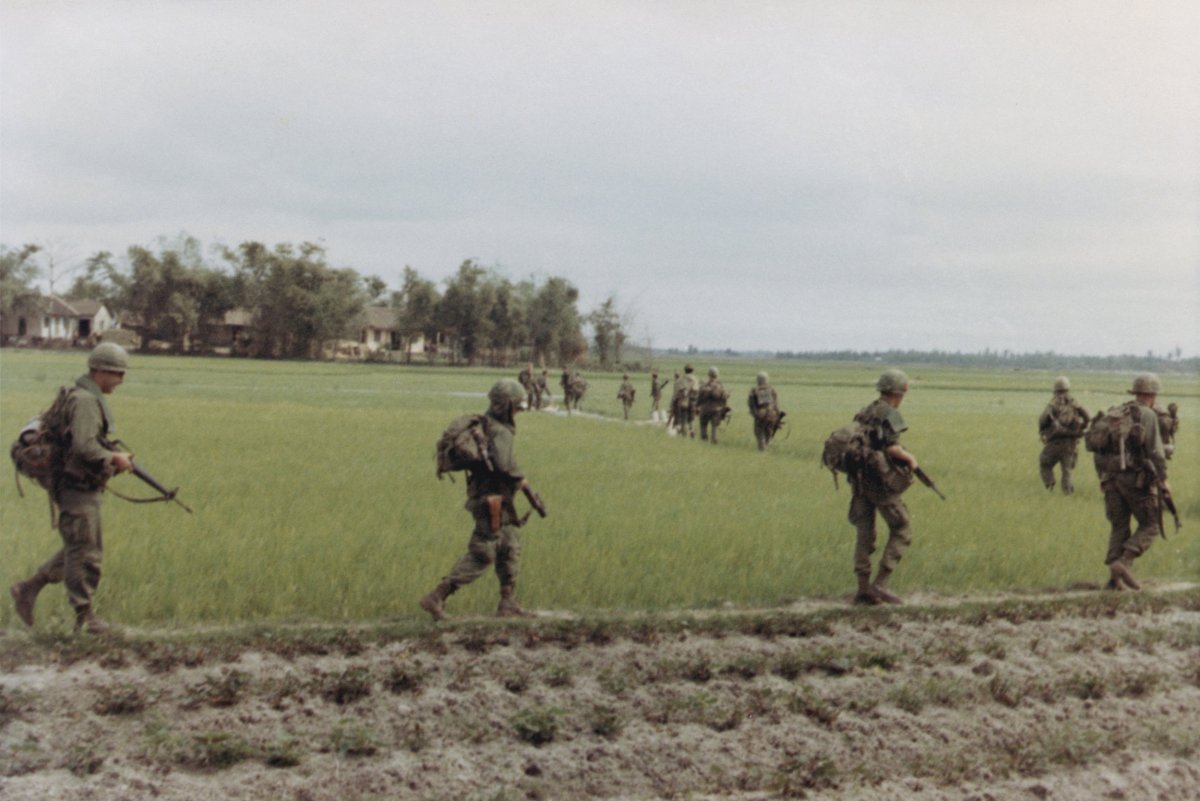
"The party and the government are really jealously protective of their master narrative of the war," says Ben Wilkinson, a Vietnam expert who is executive director of the Fulbright University in Ho Chi Minh City, who also worked on the film. It's not just that they insist they fought a war for "national liberation, and [against] foreign aggression and an invasion from the United States, rather than a civil war that pitted Vietnamese against Vietnamese," he says. The regime has "glorified the great victory, and...the [soldiers] sacrifices"—without showing the true scale of their losses in the South. During recent screenings in Hanoi and Ho Chi Minh City, Wilkinson says, scenes of "death and destruction and the corpses of revolutionary soldiers...were for some Vietnamese soldiers really shocking." They'd never seen that before.
Likewise, the film's exposure of the intense dissension and poisonous rivalries at the top of the Hanoi regime throughout the war will come as a surprise to most Americans and Vietnamese viewers. Ho Chi Minh, for example, was shunted aside by more hard-core party leaders in the mid-1960s, the series shows, even as he remained the face of the revolution in the United States and around the world. So, too, the legendary General Vo Nguyen Giap, the hero of Dien Bien Phu. Their ouster from the leadership was a closely held secret. The film shows that "the Vietnamese communist government was not a monolith," Wilkinson says, "that there was politics within it. There was politics within Hanoi, within the Communist Party, and there's vicious politics now."
Although the filmmakers and PBS devoted considerable time and expense to create a Vietnamese-language version of the series, no one expects the authorities in Hanoi to publicize it. (Though they did allow access to the Vietnamese subtitled version, a company representative says.)
Widespread viewing of the series there may well stir the kind of acrimonious debate inside Vietnam (and among its millions of exiles as well) that's rattled American politics for the past half-century. Maybe it will spur some Vietnamese Daniel Ellsberg to come forward with a communist version of The Pentagon Papers, a secret, unvarnished history of the war told from Hanoi's side, still locked up in its archives.
Not likely. Nor is it likely that The Vietnam War will heal the wounds of war or settle old disputes here over the course of its 10-week run. To the contrary, it's likely to inflame partisan passions again, if the comments of Chuck Searcy and Thomas Bass, not to mention the views of high Vietnamese officials, are any guide. And no doubt some old right-wingers will take to the ramparts once again to denounce the media for "losing the war."
The real healing can only come from veterans themselves—like with my new coffin-maker friend in Da Nang. On the sidewalk of what used to be a combat zone, we talked about our individual slices of the war, mimicked gunshots at each other, and parted in laughter.
We were brothers-in-arms, finally, happy to be alive.
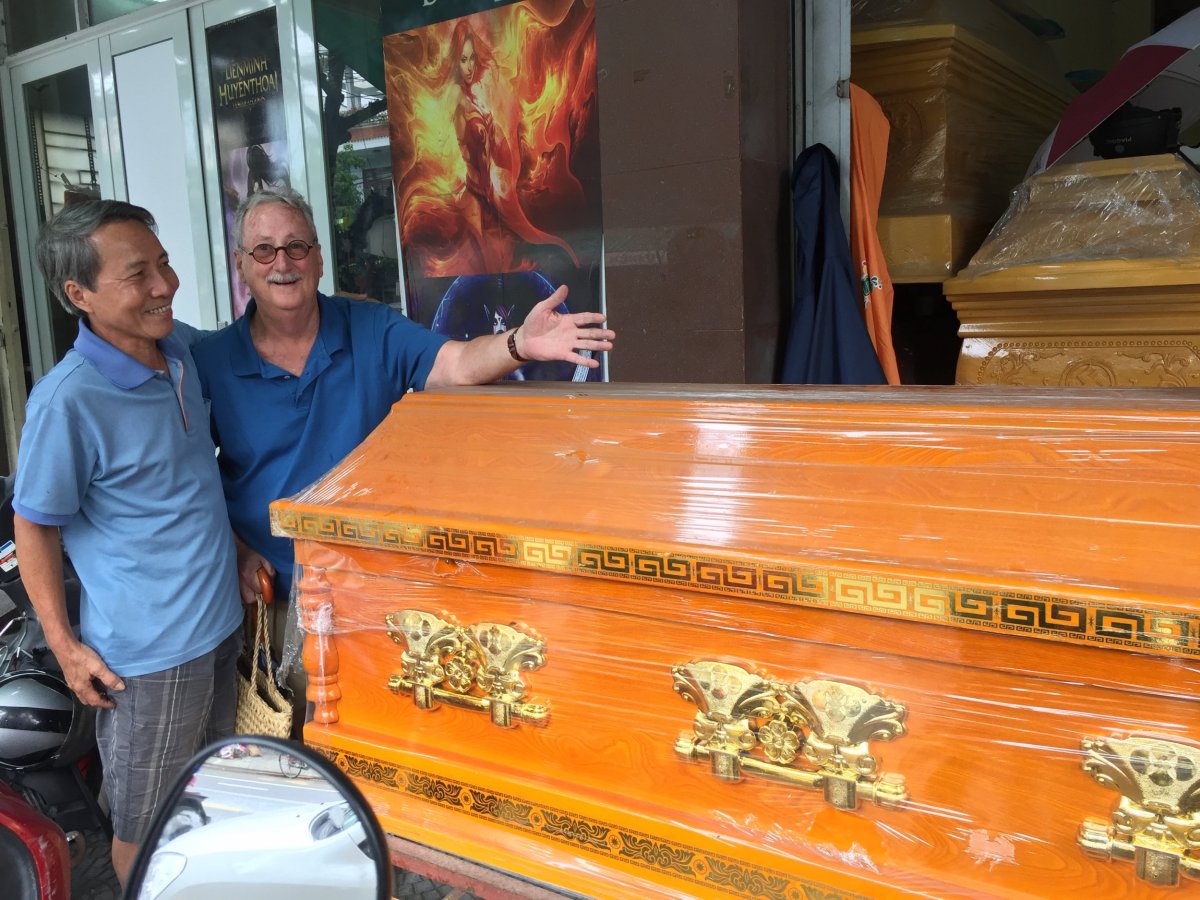
Newsweek national security correspondent Jeff Stein was a U.S. Army Intelligence case officer in South Vietnam during 1968 and 1969.
This story has been updated with the news that Hanoi allowed its citizens access to a Vietnamese-subtitled version of the opening episode streamed from the PBS site. We also added Stanley Karnow's name as the author of Vietnam: A History, which served as the basis of a previous PBS series on the war.
Uncommon Knowledge
Newsweek is committed to challenging conventional wisdom and finding connections in the search for common ground.
Newsweek is committed to challenging conventional wisdom and finding connections in the search for common ground.
About the writer
To read how Newsweek uses AI as a newsroom tool, Click here.








